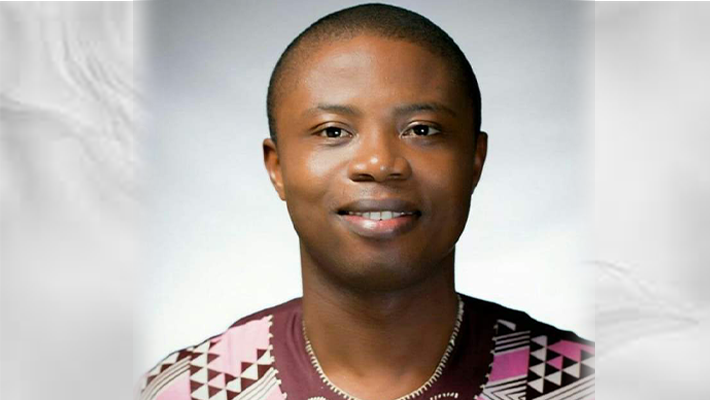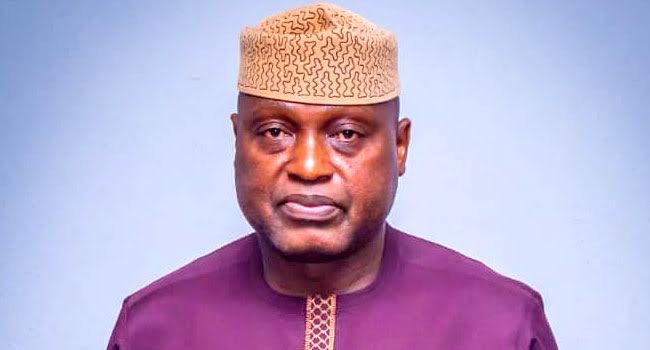Omololu Oduyoye: Nigeria’s fintech community and global war against fraud

The advent of financial technology and global adoption has been the answer to the long-awaited solution to connecting world commerce with cross-border transactions, cutting off the barriers of trade and currency conversion.
The innovation has helped businesses and even countries participate in global trade in real-time and repatriate remittances that took months just a few years ago.
But like every innovation, no matter the good intent, it always falls prey to the tactics of those who have dedicated their lives to finding loopholes in the system and dubiously benefitting from it.
For fintech, and the same for the entire banking sector, the major obstacle to its development is its susceptibility to fraud.
In 2020, during the COVID epidemic, the United States government launched the direct COVID relief payments to help Americans hit by the global lockdown and recession. This system saw the United States giving $1,200 per adult for eligible individuals and $500 per qualifying child under age 17 to buy groceries and essential things of life.
But this good initiative was quickly undermined by scam artists who compromised several government databases, including those of the IRS, stole the identities of eligible citizens and defrauded the United States Government in an operation with stolen funds valued between $87 billion to $400 billion according to the Secret Service.
If this could happen to the United States Government with its technological infrastructure, it is obvious no company or organisation is truly exempted from fraud attacks.
Whether they were done on a large scale by syndicates who specialise in identity theft or the collaboration of some account holders in “gaming” the system by compromising their access details via phishing emails, the reality is that global attention is required to stop this spread.
In 2021, one of the leading payment companies, PayPal, disclosed that it had identified 4.5 million accounts illegally created.
Every year, PayPal records an average of $1 billion in losses to fraud alone, according to Intel’s report on ‘Financial Services Fraud Detection and Prevention, PayPal as a case study.’
Recently, Tech Cabal ran a story on Flutterwave’s fund recovery process against some individuals and companies who tried to “game” the system but were caught in the act.
Unlike the banking industry, where banks are custodians of funds, fintechs such as Flutterwave, PayStack, Interswitch, Remita are merely processing channels that take your money and give it to whoever you want it to be given to.
Payment infrastructures of these processors, from my experience, are built in such a way that fraud attempts are automated, usually through a security protocol pinpointing the originating account. The system then blocks all transactions from leaving.
However, because a crime has been attempted, it is customary by Nigerian law to get authorisation from the court, which Flutterwave has done, according to the Tech Cabal’s report, to unblock such an account before making the money available to the rightful owners. This is a bureaucratic bottleneck put in place by regulators to prevent and discourage fraud and its attempts.
However, for an innovation with a selling point of speed, occurrences like this affect the much-needed adoption by the people.
In battling the beast of fraud in global fintechs, a multi-dimensional approach must be enacted to curb this menace.
The global fintechs must come together as a team and create a system that not only identifies these attempts but also ensures that perpetrators find it difficult to move such money around.
A system that alerts not just internal security measures but the entire centralised fintechs community and flags such individuals. In fact, a cross-border ban on any account found wanting from the global fintech sector will go a long way to greatly mitigate such related fraud.
Omololu Oduyoye is a fellow of the Institute of Chartered Accountants of Nigeria, former Financial Controller with African Capital Alliance and former audit consultant with KPMG.
We have recently deactivated our website's comment provider in favour of other channels of distribution and commentary. We encourage you to join the conversation on our stories via our Facebook, Twitter and other social media pages.
More from Peoples Gazette

Politics
Katsina youths pledge to deliver over 2 million votes to Atiku
“Katsina State is Atiku’s political base because it is his second home.”

Lagos
FG begins demolition of Landmark Beach for Lagos-Calabar highway project
Mr Umahi began the demolition after he inspected kilometres 13, 16 and 20 to ensure a viable way to access the coastal roads without much damage.

Education
203 Ekiti public schools benefit from $25 million World Bank grant
The commissioner said in Ado-Ekiti on Saturday tha the fund is being used to construct new buildings, renovate old ones and erect perimeter fencing.

States
Gas tanker explosion leaves one dead, two injured in Abeokuta
The FRSC spokesperson explained that the tanker suffered brake failure, lost control, crashed into the road barricade, and then burst into flames.

Heading 2
Ondo 2024: Segun Oyebolu emerges SDP candidate
Segun Oyebolu has won the Social Democratic Party (SDP) ticket for the November 16 Ondo State governorship election.

States
Road accident claimed two lives in Osun: FRSC
The FRSC official said a Sports Utility Vehicle with number plate KUJ 417 DH had a head-on collision with a commercial motorcycle with number plate SGB 708 UH.

Agriculture
Veterinary doctors decry shortage of colleagues in Benue civil service
The chairman appealed to Governor Hyacinth Alia to reinstate the veterinary doctors employed by the state civil service, but were later laid off.








